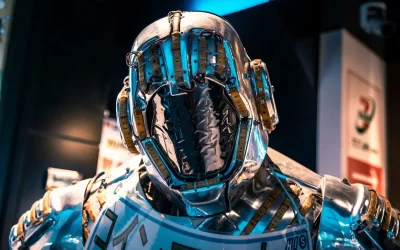The world is changing at a rapid pace. Intellectual property law is struggling to catch up, and this is impacting any industry where there is a creative effort involved — including the automotive industry. Sometimes it seems that there is something new to consider every month. Artificial intelligence? Self-driving cars or the continued movement toward electric vehicles? Much of this is territory that has cropped up only in the past few years, and there are new innovations happening every day.
So what are some of the IP law challenges currently facing the automotive industry? And what can you do about them? Let’s dive in.
Patent Eligibility in the Face of AI
“Artificial intelligence” tends to be used in recent conversation as a blanket term for machine learning, generative AI, language models, diffusion models, and other forms of systems being trained to create output that seems intelligent. Naturally, AI is a big part of what is used for the technology of self-driving cars. These cars have to be able to sense movement and avoid traffic collisions without a driver’s input. But the use of AI in car manufacturing brings up challenges when it comes to patenting.
Historically, it has been difficult for inventors of any industry to patent AI-related inventions. Section 101 in Title 35 of the US states that inventions which are a “new and useful process, machine, manufacture, or composition of matter” can potentially be patented. But, at least at this point, courts often say that AI doesn’t apply.
A SCOTUS ruling in 2014, in the case of Alice Corp v. CLS Bank, determined that when the patent is “directed to a law of nature,” it becomes ineligible. This, the ruling claimed, was the case with an attempted AI patent, which was denied. The Federal Court of Appeals upheld the denial of a patent for an automated driveshaft invention in American Axle & Manufacturing v Neapco Holdings as recently as July of 2020.
And of course, last year in the Federal Circuit case of Thaler v. Vidal, it was ruled that an AI cannot be listed as an inventor as it is not a “human creator.” But even without AI being listed as an inventor, it is possible for AI-assisted inventions to be granted patents or for patents to be granted for AI inventions. As AI is becoming more prevalent, the laws may be updated, allowing for more patents to be eligible. IP attorneys at Garcia-Zamor can help you navigate these complex and changing waters, including the likelihood of your patent being granted.
Updating Designs and Logos When Going Electric
More and more companies in the automotive industry are moving towards electric vehicles, and they want their customer base to know about it. For instance, Volkswagon’s GTI line recently changed their trademark so that the I was designed to look like a lightning bolt.
In the automotive industry, these logos don’t just go on the promotional material but on the vehicles themselves. That’s why it’s important for any trademarks for logos, unique designs, and more to be registered. However, with the way IP law works currently, you likely won’t be able to modify your trademark. Instead, you may need to file a new trademark registration — or more likely, ask your attorneys at Garcia-Zamor to do so for you.
Protecting Trade Secrets
Automotive manufacturers are in a race towards the future. It seems as though every reputable manufacturer is looking for a way to create a fully autonomous vehicle or a more effective electric vehicle. With so much competition out there, it’s all the more important for automotive professionals to protect their trade secrets.
A trade secret is anything that has inherent economic value by nature of not being widely known. Of course there will be members of your company who will need to know the trade secret in order to do their jobs. But you can still take steps to protect your intellectual property. Have the Garcia-Zamor team draft an NDA to keep your trade secrets from spreading to the public. This way, if an employee or former employee does leak your trade secret, you can seek financial recovery. You can also protect your trade secrets by limiting who has access to that knowledge within your company.
For Any New IP Challenges Impacting the Automotive Industry, Turn to Garcia-Zamor
As the automotive industry continues to grow and IP law attempts to keep up, it’s important to know what your intellectual property rights are. At Garcia-Zamor, we have over two decades of combined experience in the field of intellectual property. We’re ready to help you. Contact Garcia-Zamor today to learn more or to schedule a consultation.







